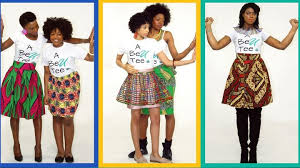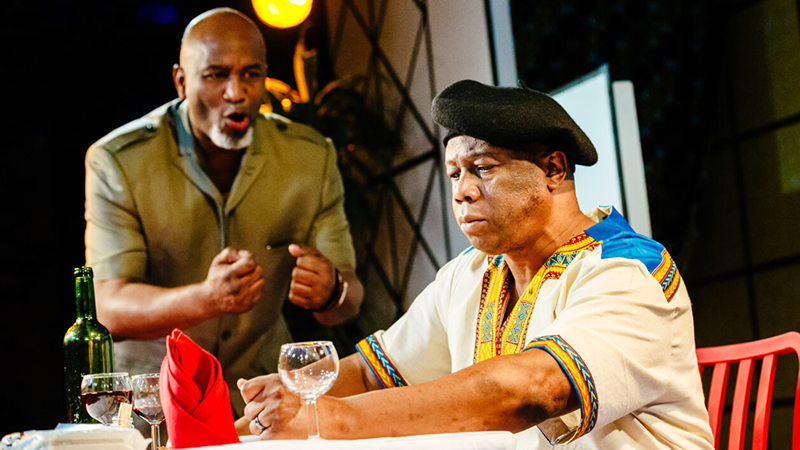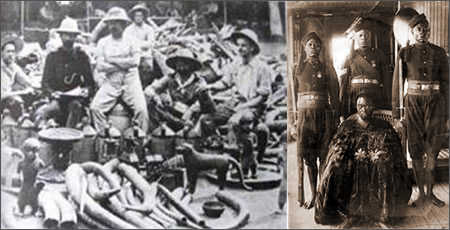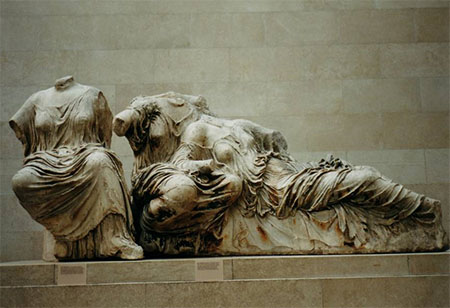John Sentamu is clearly African. Born in Uganda he is Britain’s first African archbishop. Yet despite this fact after his inauguration the BBC and other media organisations chose to exclusively refer to him as the first ‘black’ archbishop.

If you were to search the national media archives you will not find any reference to Sentamu as the first African British archbishop to the Church of England. Instead you will only hear of a ‘black’ Briton who was born in a far away place named Uganda. This eurocentric writing of African British history is revealing. The time honoured western practice of reducing African identity to a colour label and only preserving european details for historical records perpetuates the myth that African people are not the makers of history in the UK.
Communications regulator Ofcom defends this practice and in response to our complaint on the matter states ‘we do not feel the use of the term ‘black’ in the context of describing Dr Sentamu as the ‘first black archbishop’ was inappropriate’. Ofcom says this despite the fact that he is an African and if we were to accurately refer to the colour of his skin he is brown. The regulator actually goes further than most to justify this practice and states ‘it is also worth mentioning that Dr Sentamu himself has said that the Church itself was socially glued together by a monochrome – white – culture. Therefore it could be argued that the reference to ‘black’ was justifiable in this context.
The BBC has another take on the matter and in correspondence to Ligali on this issue writes;
“Our staff are expected to be sensitive to public concerns and perceptions in their choice of language. Our programmes serve the whole community and should not exclude listeners or viewers because of any terms used in them. Discussion of the word 'black' will always reveal a variety of viewpoints. Many colours take an additional meaning (for example green, yellow and red have other senses in which they can be used). It is how these words are used that is important and there should be no ambiguity in their use, or danger that different meanings are confused.”
It is an interesting point which we agree with. It proves our argument that used as a qualifier to define a group of people the BBC is fully aware that the label ‘black’ can have many meanings and therefore is open to a variety of interpretation. If we acknowledge the fact that African people are in fact brown skinned then we know that usage of the label ‘black’ like that of the label ‘white’ to describe pink skinned europeans is symbolic. Likewise usage of the label ‘coloured’ deliberately excluding pink skinned europeans from the definition is also symbolic.
With this knowledge it becomes an irrefutable fact that european usage of the label ‘black’ to describe African people is based on ideology which seeks to mask and subjugate African identity while inferring inferiority, corruptness and evilness. It is a word which was introduced into european languages to describe African people by europeans who were actively engaged in the enslavement and cultural disinheritance of African people. The very same intellectual process which recognised ‘negro’ as an offensive word used to denigrate and oppress African people (the word denigrate actually meaning ‘to blacken’ as in soil and make inferior) should be applied to usage of the label black to define ethnicity.
Negro is from the French word nègre and the Spanish or Portuguese word negro meaning ‘black’. The n word (1786) is a derivative of the earlier racist epithet neger (1568) which itself is from the from the Latin word nigrum. One european publication in 1965 accurately states that from the earliest usage the n word was "the term that carries with it all the obloquy and contempt and rejection which [Europeans] have inflicted on [Africans]". Usage of the label black extended this contemptuous ideology into the 20 century.
Phrases such as ‘black’ people of African descent are as ridiculous as ‘yellow’ people of Chinese descent or ‘brown’ people of Asian descent. Nonetheless eurocentric institutions with national reach and influence such as schools, broadcasters and media publishers have proactively sought to normalise the marginalisation of African identity, whilst criminalising and profiteering from the perception of ‘black urban’ identity.
This must stop.
The misinterpretation of the BBC’s intent towards African people can simply be avoided by choosing not to use and institutionalise nefarious symbolism. Educational and media publishing institutions like the BBC can choose not to perpetuate the racist ideology of colour by deciding to expunge usage of the label ‘black’ and the n word whilst embracing the accurate, proven and more respectful terminology on ethnicity.
In short the solution is simple, call us by our name.
African.


Sentamu: black British not African British?
Communications regulator Ofcom defends this practice and in response to our complaint on the matter states ‘we do not feel the use of the term ‘black’ in the context of describing Dr Sentamu as the ‘first black archbishop’ was inappropriate’. Ofcom says this despite the fact that he is an African and if we were to accurately refer to the colour of his skin he is brown. The regulator actually goes further than most to justify this practice and states ‘it is also worth mentioning that Dr Sentamu himself has said that the Church itself was socially glued together by a monochrome – white – culture. Therefore it could be argued that the reference to ‘black’ was justifiable in this context.
The BBC has another take on the matter and in correspondence to Ligali on this issue writes;
“Our staff are expected to be sensitive to public concerns and perceptions in their choice of language. Our programmes serve the whole community and should not exclude listeners or viewers because of any terms used in them. Discussion of the word 'black' will always reveal a variety of viewpoints. Many colours take an additional meaning (for example green, yellow and red have other senses in which they can be used). It is how these words are used that is important and there should be no ambiguity in their use, or danger that different meanings are confused.”
It is an interesting point which we agree with. It proves our argument that used as a qualifier to define a group of people the BBC is fully aware that the label ‘black’ can have many meanings and therefore is open to a variety of interpretation. If we acknowledge the fact that African people are in fact brown skinned then we know that usage of the label ‘black’ like that of the label ‘white’ to describe pink skinned europeans is symbolic. Likewise usage of the label ‘coloured’ deliberately excluding pink skinned europeans from the definition is also symbolic.
With this knowledge it becomes an irrefutable fact that european usage of the label ‘black’ to describe African people is based on ideology which seeks to mask and subjugate African identity while inferring inferiority, corruptness and evilness. It is a word which was introduced into european languages to describe African people by europeans who were actively engaged in the enslavement and cultural disinheritance of African people. The very same intellectual process which recognised ‘negro’ as an offensive word used to denigrate and oppress African people (the word denigrate actually meaning ‘to blacken’ as in soil and make inferior) should be applied to usage of the label black to define ethnicity.
Negro is from the French word nègre and the Spanish or Portuguese word negro meaning ‘black’. The n word (1786) is a derivative of the earlier racist epithet neger (1568) which itself is from the from the Latin word nigrum. One european publication in 1965 accurately states that from the earliest usage the n word was "the term that carries with it all the obloquy and contempt and rejection which [Europeans] have inflicted on [Africans]". Usage of the label black extended this contemptuous ideology into the 20 century.
Phrases such as ‘black’ people of African descent are as ridiculous as ‘yellow’ people of Chinese descent or ‘brown’ people of Asian descent. Nonetheless eurocentric institutions with national reach and influence such as schools, broadcasters and media publishers have proactively sought to normalise the marginalisation of African identity, whilst criminalising and profiteering from the perception of ‘black urban’ identity.
This must stop.
The misinterpretation of the BBC’s intent towards African people can simply be avoided by choosing not to use and institutionalise nefarious symbolism. Educational and media publishing institutions like the BBC can choose not to perpetuate the racist ideology of colour by deciding to expunge usage of the label ‘black’ and the n word whilst embracing the accurate, proven and more respectful terminology on ethnicity.
In short the solution is simple, call us by our name.
African.






Get involved and help change our world